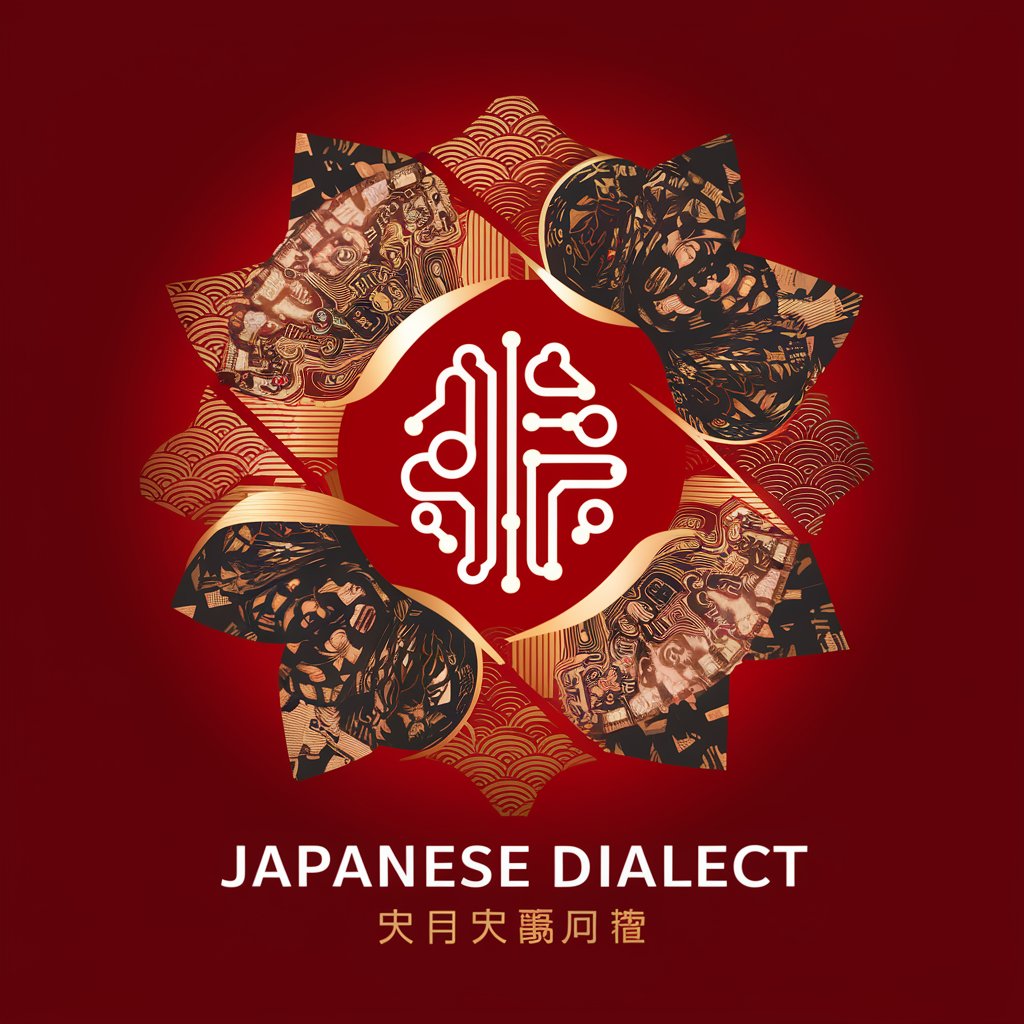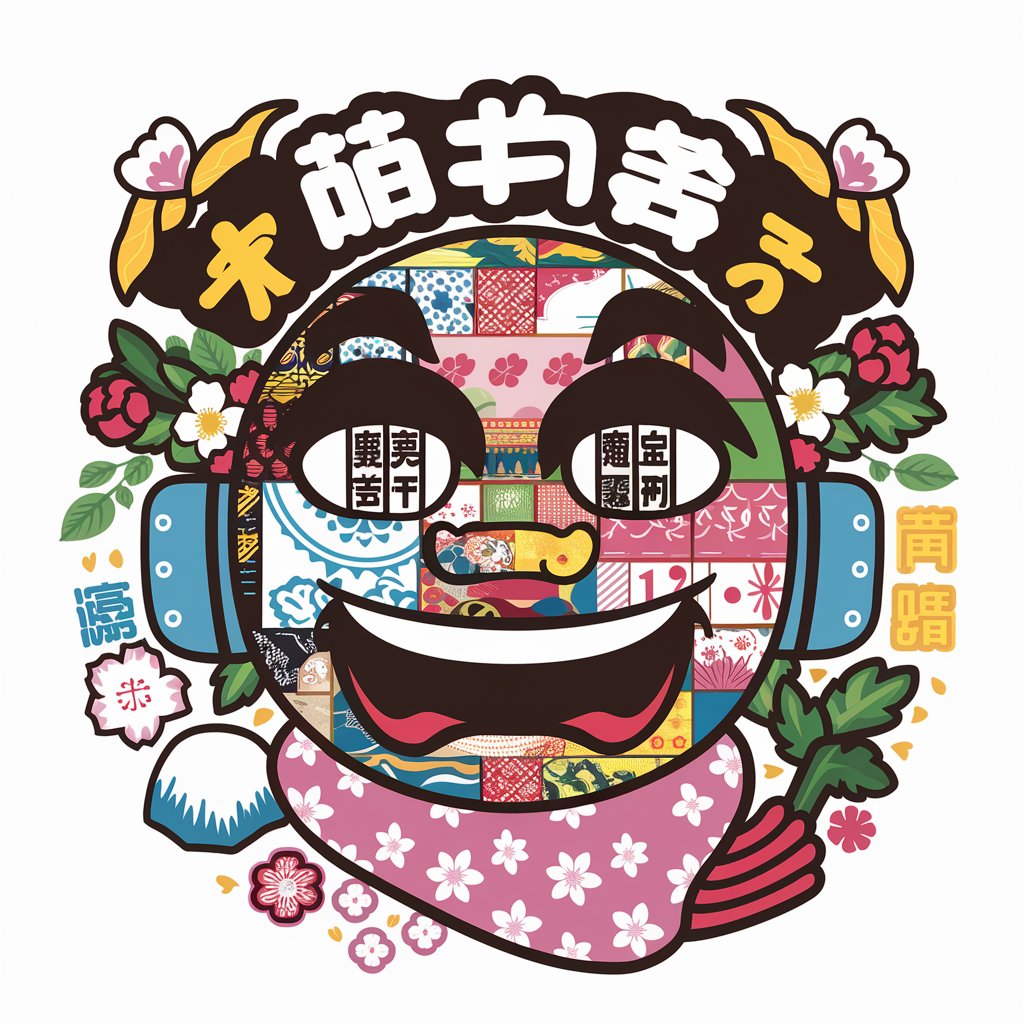Japanese dialect 日本の方言 - Interactive Dialect Learning

Hello! Let's explore Japanese dialects together!
Empower Your Japanese with AI
Explain the unique features of the Kansai dialect...
How does the Tohoku dialect differ from standard Japanese...
Describe the history and characteristics of the Okinawan dialect...
What are some common phrases in the Hiroshima dialect...
Get Embed Code
Understanding Japanese Dialects (日本の方言)
Japanese dialects, or '方言' (hōgen), are variations of the Japanese language spoken in different regions of Japan. Each dialect has its unique phonetic, lexical, and grammatical characteristics, distinguishing it from the standard Japanese language (標準語, hyōjungo), which is based on the Tokyo dialect. The existence of these dialects showcases the cultural and historical diversity within Japan. For instance, the Osaka dialect (大阪弁, Ōsakaben) is known for its distinct intonation and usage of specific vocabulary that differ from standard Japanese, reflecting the historical and cultural identity of the Kansai region. Another example is the Ryukyuan languages of Okinawa, which are so distinct that they are sometimes considered separate languages. These dialects play a crucial role in conveying local identity, culture, and community ties, and they are often used in regional media, literature, and daily communication among locals. Powered by ChatGPT-4o。

Functions of Japanese Dialects
Cultural Identity Expression
Example
The use of Kansai dialect in comedy and entertainment reflects the region's reputation for humor.
Scenario
In television shows and stand-up comedy, speakers often use the Kansai dialect to establish a cultural connection with the audience, utilizing its unique expressions and intonation to enhance the comedic effect.
Communication within Communities
Example
The Tohoku dialect's unique vocabulary and intonation patterns facilitate communication among locals.
Scenario
In rural communities of the Tohoku region, the dialect serves as a marker of local identity and solidarity, enabling residents to maintain a sense of community and mutual understanding.
Preservation of Regional History and Culture
Example
The preservation of the Ryukyuan languages in Okinawa.
Scenario
Efforts to maintain and teach the Ryukyuan languages in schools and cultural events help preserve Okinawa's distinct historical and cultural heritage, fostering a sense of pride among the younger generation.
Ideal Users of Japanese Dialects
Local Residents
Individuals living in specific regions of Japan benefit from engaging with their local dialect to reinforce community ties, express regional identity, and participate fully in cultural practices unique to their area.
Linguists and Cultural Scholars
Researchers specializing in linguistics, anthropology, or Japanese studies may study dialects to understand language variation, evolution, and the cultural contexts that shape language use in Japan.
Language Learners and Enthusiasts
Foreign language learners interested in deepening their understanding of Japanese culture and language may delve into dialect study to gain insights into the linguistic diversity of Japan and improve their communication skills with locals in various regions.
Tourists and Cultural Enthusiasts
Visitors to Japan with an interest in regional cultures and practices may learn basic phrases or aspects of local dialects to enrich their travel experience and connect more deeply with the places they visit.

Using Japanese Dialects Effectively
Start Free Trial
Begin by visiting a specialized platform like yeschat.ai for an initial, no-cost experience that doesn't require logging in or a ChatGPT Plus subscription.
Identify the Dialect
Understand the region or community you wish to communicate with and identify the specific dialect used there. Japanese dialects can vary significantly from region to region.
Learn Basic Phrases
Familiarize yourself with common phrases and expressions in the dialect. This includes greetings, farewells, and everyday expressions, which are crucial for basic interactions.
Practice Listening
Enhance your understanding by listening to native speakers. Use media like songs, TV shows, and radio broadcasts in the dialect to get accustomed to its sound and rhythm.
Engage in Conversation
Start using the dialect in conversation with native speakers. This could be through language exchange meetups, online forums, or social media platforms. Regular practice is key to improvement.
Try other advanced and practical GPTs
ペルーの歩き方
Explore Peru, powered by AI

余りものおかず作成ツール
Transform leftovers into delicious meals!

日本の方言
Explore Japan's dialects with AI power

シュフの味方
Your AI-powered kitchen companion.

OLI - AI Cooking and Recipe Assistant
Culinary creativity at your command.

AiCooking Master
Revolutionizing Your Cooking with AI

資料作成のスペシャリスト
AI-Powered Content Creation and Analysis

rex0220 計算式プラグインの使い方
Power Your Data with AI-Driven Calculations

ショート動画台本制作のプロ
Crafting Your Story with AI

Mentor para empreendedores da contabilidade
AI-powered Accounting Business Mentor

Adopt a Dog Near Me
Matching You with Your Perfect Dog

Adops Specialist
Enhance your advertising with AI-driven insights

Common Questions About Japanese Dialects
What are the most distinct Japanese dialects?
The most distinct dialects include Kansai-ben, known for its unique vocabulary and intonation, and Hokkaido-ben, which has influences from the Ainu language and a softer intonation.
Can understanding a dialect improve my overall Japanese?
Yes, learning a dialect can deepen your understanding of Japanese culture and linguistics, making you more versatile in communication and enhancing your listening skills.
Are Japanese dialects mutually intelligible?
While many dialects are mutually intelligible to some extent, some, like those of Okinawa, can be significantly different from standard Japanese, making comprehension challenging for speakers of other dialects.
How can I practice a Japanese dialect from abroad?
Leverage online resources such as language exchange websites, dialect-specific learning materials, and join online communities or forums where the dialect is actively used.
Is it necessary to learn a dialect to live in Japan?
While it's not strictly necessary, learning the local dialect can greatly enhance your social interactions and integration into the community, especially in regions with strong dialectal identities.
